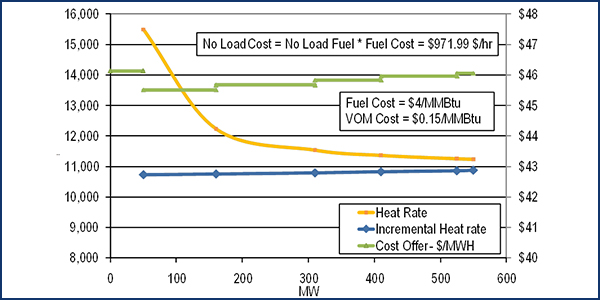By Michael Yoder
The PJM Members Committee approved changes Thursday to the RTO’s fuel-cost policy (FCP) rules, but not before another round of animated debate over force majeure events.
The new rules, which are spelled out in revisions to Schedule 2 of the Operating Agreement and Manual 15: Cost Development Guidelines, were approved by a sector-weighted vote of 3.9 (78%).
The package, proposed by the PJM Industrial Customer Coalition, was approved by the Markets and Reliability Committee last month on a sector-weighted vote of 3.57 (71%) despite concerns that new safe harbor provisions would create loopholes permitting the exercise of market power. (See PJM MRC OKs Revised Fuel-cost Policy.)
It eliminates the FCP annual review, the FCP requirement for zero-marginal-cost offer units, and market seller submission deadlines. The deadlines for reviewing FCPs was changed: The Independent Market Monitor will have an initial 10 business days to review a policy and an additional five business days when a market seller revises the policy. PJM will have 20 business days to review a policy and an additional five business days for reviewing revisions, although that time frame can be changed if agreed to by PJM and the market seller.
The ICC included a safe harbor provision proposed by generators but modified the terms for imposing penalties for noncompliance. It would impose the full penalty if the unit clears in the day-ahead market or runs in real time on a cost-based offer and is paid day-ahead/balancing operating reserves. The full penalty also would apply if the unit fails the three-pivotal-supplier (TPS) test for constraints or the cost offer is above $1,000/MWh.
Susan Bruce, representing the ICC, said the concerns raised in February about the proposal “resonate with industrial customers,” but she said she will continue to support the measures.
“We offered [changes] in the spirit of compromise, and we believe that compromise is an essential element of the stakeholder process,” Bruce said.
The safe harbor section of the proposal allows a generator to avoid penalties if it deviates from its FCP because of a force majeure event.
PJM will determine whether the evidence proves the force majeure event “directly impacted the market seller’s ability to conform to the methodology” in its FCP. “The applicability of this provision shall not apply for economic hardship nor obviate the requirement for a market seller to submit cost-based offers that are just and reasonable, and utilize best available information to develop fuel costs during a force majeure event,” the revised OA says.
Greg Poulos, executive director of the Consumer Advocates of the PJM States, cited concerns over the safe harbor provision in requesting a sector-weighted vote on the proposal, saying he was surprised to see the revisions listed in the consent agenda because it had been the subject of a contentious vote at the MRC. “Many of us will be voting ‘no,’” he said of his group’s members. He said he would like to see PJM create a policy on what items can be included in the consent agenda.
Monitor Joe Bowring said he continued to oppose the revised force majeure language because no one has identified an event that would prevent market sellers from following their fuel-cost policies. With the emergence of the COVID-19 pandemic since February’s meeting, he said, sellers could argue “that every single fuel-cost policy would now be moot.”
“There’s actually no reason to have a force majeure exception, and the current state of the world indicates that even more clearly,” Bowring said. “The proposal is equivalent to not having any fuel-cost policies now and having every single unit be subject to unit-specific review based on the actual facts. That is not workable. The purpose of fuel-cost policies is to address unusual and unexpected conditions, and current fuel-cost policies do that.”
Paul Sotkiewicz of E-Cubed Policy Associates disagreed with the classification of the current pandemic, saying he believed it was “alarmist and also wrong” to use the coronavirus as a force majeure event because there have been no issues in getting pricing for fuels.
“I think the fuel-cost policies are still in effect here, even with the coronavirus,” Sotkiewicz said. “It’s a scare tactic.”







